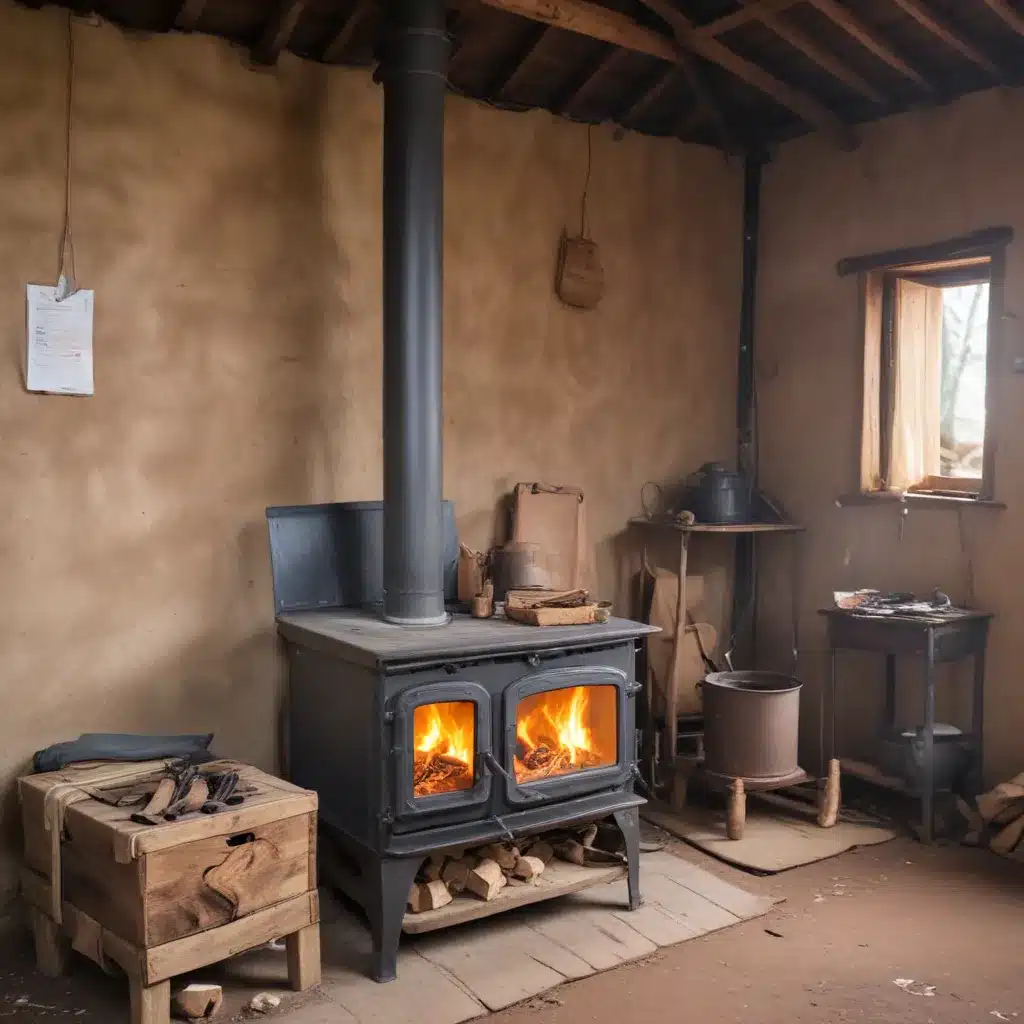
Navigating the Complexities of Sustainable Wood Stove Use in Remote Communities
As a seasoned expert in wood stoves and heating solutions, I’ve witnessed firsthand the challenges faced by off-grid communities in developing regions when it comes to maintaining compliance and ensuring sustainable heating practices. In this comprehensive article, we’ll explore practical strategies and in-depth insights to help these communities overcome regulatory hurdles, improve energy efficiency, and adopt safer, more eco-friendly wood stove technologies.
Aligning with Emission Standards and Certification Schemes
One of the primary obstacles for off-grid wood stove users is navigating the complex web of emission standards and certification schemes. The Quantification Methodologies and Calculator Tools provided by the California Air Resources Board (CARB) offer a valuable starting point. These resources outline the guidelines and requirements for various project types, including the use of wood stoves and other heating solutions.
By understanding the specific quantification methodologies and emission factors applicable to their region, off-grid communities can better align their wood stove practices with the necessary compliance measures. This not only helps them reduce greenhouse gas emissions but also ensures they are eligible for potential funding or incentive programs.
Moreover, the development of robust certification schemes, as outlined in the CDM Methodologies Documentation, can further assist these communities in verifying the sustainability and efficiency of their wood stove technologies. Implementing these certification processes can open up new opportunities for international collaboration and access to clean energy financing.
Integrating Renewable Energy Solutions
The World Energy Transitions Outlook 2023 highlights the critical role of renewable energy in achieving global climate goals. For off-grid wood stove users, integrating renewable energy solutions can significantly enhance their compliance efforts and overall energy efficiency.
By incorporating technologies such as solar photovoltaic (PV) systems, wind turbines, or even small-scale hydropower, these communities can reduce their reliance on traditional wood-burning stoves and diversify their energy sources. This not only helps mitigate greenhouse gas emissions but also enhances the reliability and sustainability of their heating systems.
Furthermore, the integration of renewable energy can unlock new funding opportunities, as demonstrated by the World Bank’s initiatives on clean cooking. These programs often prioritize projects that combine wood stove upgrades with the deployment of renewable energy technologies, providing a more holistic approach to energy access and environmental preservation.
Fostering Sustainable Biomass Supply Chains
Ensuring the sustainable sourcing and management of wood fuel is another crucial aspect of compliance for off-grid wood stove users. The CDM Methodologies Documentation highlights the importance of developing robust biomass supply chain strategies to minimize the environmental impact and improve the overall sustainability of wood-based heating solutions.
This may involve implementing sustainable forestry practices, promoting the use of renewable biomass sources, and implementing chain-of-custody mechanisms to track the origin and processing of wood fuels. By adopting these measures, off-grid communities can not only demonstrate compliance with regulatory frameworks but also contribute to the preservation of local ecosystems and natural resources.
Enhancing Energy Efficiency and Thermal Comfort
Improving the energy efficiency of wood stoves is another crucial aspect of compliance for off-grid users. The Quantification Methodologies and Calculator Tools provided by CARB offer valuable insights into evaluating the energy efficiency and greenhouse gas reduction potential of various heating technologies.
By upgrading to more efficient wood stove models, off-grid communities can not only reduce their fuel consumption and associated emissions but also enhance the overall thermal comfort of their living spaces. This, in turn, can lead to improved health outcomes and increased quality of life for residents.
Furthermore, the integration of thermal insulation, weatherization measures, and proper stove installation can further optimize the energy efficiency and performance of wood stove systems, ensuring compliance with evolving regulatory standards.
Leveraging International Collaboration and Capacity Building
Navigating the complexities of compliance and sustainable wood stove use in off-grid communities often requires collaborative efforts on a global scale. The World Bank’s initiatives on clean cooking demonstrate the value of international partnerships in driving progress and facilitating knowledge exchange.
By engaging with international organizations, development agencies, and regional networks, off-grid communities can access technical expertise, funding opportunities, and capacity-building programs. These initiatives can help them overcome regulatory hurdles, adopt best practices, and implement innovative solutions tailored to their local context.
Moreover, the establishment of knowledge-sharing platforms and the dissemination of case studies can inspire and empower other off-grid communities to replicate successful compliance strategies, fostering a more sustainable and equitable approach to wood stove use across developing regions.
Conclusion: A Holistic Approach to Sustainable Heating
Achieving compliance and sustainable wood stove use in off-grid communities of developing regions is a multifaceted challenge that requires a comprehensive and collaborative approach. By aligning with emission standards, integrating renewable energy solutions, fostering sustainable biomass supply chains, enhancing energy efficiency, and leveraging international collaboration, these communities can overcome regulatory hurdles and pave the way for a more sustainable heating future.
The resources and insights provided in this article offer a roadmap for off-grid wood stove users to navigate the complexities of compliance, improve their heating practices, and contribute to the global fight against climate change. By embracing these strategies, communities can not only ensure their compliance with regulatory frameworks but also enhance the overall quality of life for their residents and safeguard the environment for generations to come.
For more information on wood stoves, heating solutions, and energy efficiency, be sure to visit https://woodstoveheaters.com/.



